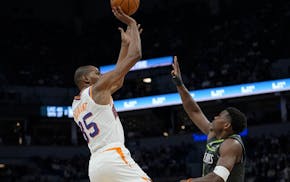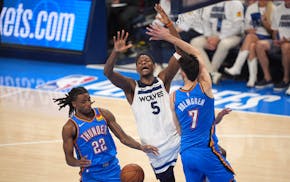Here are the six dumbest things in history:
(This list may be incomplete.)
6. Union general actually tries to make it rain. Edward Powers believed that rain often fell after Civil War battles and, later in the 19th century, he persuaded U.S. government officials to experiment with exploding dynamite in clouds to create storms.
5. Inventor of the safety pin dies penniless. Walter Hunt invented the safety pin in 1849 in Brooklyn. He sold the patent for $400. He died penniless in a world filled with billions of safety pins.
4. Jack Daniel's toe kills him. Jack Daniel of whiskey fame died, or so the story goes, because he kicked a safe after forgetting its combination. The toe became infected and he died of gangrene.
3. Fans complaining about player transfers.
College athletes play for coaches who regularly leave for more money and more prestigious jobs. They are usually American citizens who have become de facto employees of companies that make lots of money. Why wouldn't they be allowed to transfer, like any other employee?
Because student-athletes are free agents, colleges — should they want to build more "loyalty" into their sports programs — should sign them to contracts. As if they're actual people.
2. NHL players fighting in 2024.
Sources confirm that it is indeed 2024. Even the NFL, which tried to hide the effects of brain injuries from players for decades, has worked to lessen head trauma. The NHL continues to allow stoppages of play so two hockey players can punch each other in the head.
This grotesque display is followed by other players, and fans, cheering as if this were not the dumbest thing in sports (except for our No. 1, which will shortly be revealed).
As the Wild's enforcer, Derek Boogaard once hit future teammate Todd Fedoruk so hard Fedoruk had to have metal plates placed in his face. Boogaard died in 2011 of a drug and alcohol overdose while recovering from a concussion, and he was later found to have CTE (chronic traumatic encephalopathy), which is caused by repeated traumatic brain injuries.
Now Wild fans cheer when Marcus Foligno or another enforcer square off with an opponent and try to damage their brains.
What do Olympic, college, high school and women's hockey have in common?
No staged fights. None of those sports suffers from their lack of brutality and stupidity.
One excuse offered for fighting by NHL people is that sometimes a fight can energize or awaken a struggling team.
Might I suggest, instead, an espresso machine on the bench?
1. Fans storm college courts, over and over again.
Iowa star Caitlin Clark will play at Williams Arena on Wednesday. Would it be too much to ask you not to injure her?
Earlier this season, Clark collided with an Ohio State fan who was storming the court.
This weekend, Duke's Kyle Filipowski was injured by a court-storming fan at Wake Forest.
Who could have seen this coming? Other than anyone with an elementary school education?
Court-storming began decades ago as a spontaneous crowd reaction to an unimaginable upset.
Now it's a planned event staged by entitled fans eager to get onto the court after any mildly surprising victory.
Fans are not allowed to storm a theater's stage. They are not allowed to storm a rock band's stage — and if they do, Keith Richards might hit them in the head with his Telecaster. (Telecasters are ideal for fan-swatting.)
NFL and MLB fans are not allowed to storm the field. Hockey fans are not allowed to slip-and-slide on the ice.
College basketball is the only major sport that allows fans to sprint at players who have nothing but their elbows with which to protect themselves.
It was always a bad idea, and it has been made worse by the modern fan and social media.
Want to become a momentary minor celebrity? Run over a basketball player.
NHL fighting and college basketball court-storming are symptoms of the same diseases: tradition, and disregard for human safety.
What court-stormers are doing is, essentially, trespassing.
If this practice isn't curbed, there will be an even more serious injury, and the rules will change.
Why don't we skip the serious injury part, and start protecting college basketball players now?

Souhan: Anxiety and depression in the NFL helped inspire Lindsey Young's children's book
Souhan: For Lynx star Napheesa Collier, 'Phee' is just fine

Souhan: Will the Wolves trade for Kevin Durant? Should they?

Souhan: If Edwards is a franchise player, he needs to act and play like it


